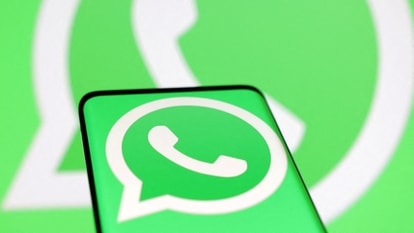Ukraine war fake news: The fog of war is spreading at warp speed online
From old videos of tanks to dubious internet fundraisers, fake news is moving faster than ever amid the Russian invasion of Ukraine.

Before Russian forces launched the first missile at Ukraine, the online conflict was already underway. Russia is well-versed in the methods of spreading lies, most notably with the social media bots and trolls it used to meddle in the 2016 U.S. election, and its very justification for invasion is based on a disinformation campaign — the need to “protect” civilians in separatist regions despite no evidence they were under attack. But the confusion is also being fueled by other actors in the U.S. and Europe, grubbily seeking to capitalize on the world's attention.
In just one example of what appeared to be coordinated disinformation from Moscow, Bill Blain, a U.K.-based market strategist with a popular newsletter, said Friday that he'd been getting a flood of emails that purported to be from ex-U.S. servicemen, all with suspiciously similar comments assailing his critical comments about Russia. He found many of same comments sprinkled on other websites like ZeroHedge. “Not terribly subtle,” he noted in his newsletter.
Misinformation is coming from outside Russia too. On TikTok for instance, a video of a parachuting soldier racked up 20 million views on Thursday with the top comment citing Russia's invasion of Ukraine. In fact, the video was from 2016.
There are also dubious charitable efforts that have gone viral. One online fundraising campaign for Ukraine appeared to have raised more than $400,000 before it was taken down by Meta Platforms Inc.'s Instagram this week. It's still unclear if the account behind it — which is reportedly run by a 23-year-old man in Florida — funneled the money to a legitimate non-governmental organization in Ukraine. On Facebook, the NGO said that the fundraiser was real. But Internet users in Ukraine have called out the campaign as a scam.
That has muddied the waters for genuine fundraising efforts. One of the most popular this week, the Come Back Alive fundraiser for the Ukrainian military, was shut down on Thursday by Patreon Inc., after raising more than $250,000 from thousands of backers for the purchase of military gear. When asked about its removal, a Patreon spokesperson said it didn't allow campaigns aimed at purchasing war-fighting equipment, “no matter the cause.” The company said in a blog post on Friday that all remaining donations were being refunded.
Big Tech companies are often criticized for not doing enough to uphold their policies, but the chaos in Ukraine underscores how those terms are now putting them between a rock and a hard place. Many Ukrainians, for example, were angered by Patreon's move.
“It's one of the main ways for Ukrainians to protect peaceful citizens from Russian attacks,” said Orysia Khimiak, a former communications director for a Ukrainian tech startup who is now working with the country's Ministry of Foreign Affairs. She added that Come Back Alive had been active on Patreon for eight years until this week, and that it was frustrating to see it taken down while other potentially fake fundraisers were percolating online.
On Friday afternoon, Khimniak was taking refuge with her family in one of a number of bomb shelters dotted around Kyiv, which she and other citizens can find on an online map released by city authorities. Such tools are becoming critical now as residents try to keep safe. But the pace at which false online information is circulating online makes that increasingly difficult.
“It's the fog of war, but at high speed,” says Renee DiResta, technical director of the Stanford Internet Observatory, who has studied online disinformation tactics from Russia and others for several years. After the spread of fake news around the U.S. elections and Covid-19 lockdowns, this time there is the added complexity of velocity. “Events are unfolding extremely quickly, across multiple fronts.”
Ukrainian cities have become hashtags on platforms like Facebook, Twitter and messaging apps like Telegram, offering dozens of opportunities for purveyors of false information, DiResta said. Her research team has been tracking how over the past weeks, pro-Kremlin propaganda spread on Telegram through fake accounts, many of them pushing the false narrative that President Joe Biden wants Russia to invade because it will solve America's economic and political problems.
Facebook, which has been criticized for neglecting harmful content in non-English speaking parts of the world, said it is beefing up its policing of content about Russia and Ukraine. A spokesman in Washington D.C. said Friday that native-speaking experts from across the company were helping to monitor the situation. The online giant with roughly 2 billion users faces an uphill battle, but it was also encouraging to see media firms like Sky News making a point to note in at least two tweets on Thursday that it had “verified and located” video footage of armored vehicles moving into Ukraine.
It is more vital than ever for anyone reading about the conflict on social media to think carefully about anything they share. Humans suffer from an impulse to be the first to disseminate new information, but in situations of such fluidity and chaos, pausing is far more important. Social media users should demand a minimum standard of corroboration. Otherwise the grim reality of war becomes lost in the fog.
Catch all the Latest Tech News, Mobile News, Laptop News, Gaming news, Wearables News , How To News, also keep up with us on Whatsapp channel,Twitter, Facebook, Google News, and Instagram. For our latest videos, subscribe to our YouTube channel.


























